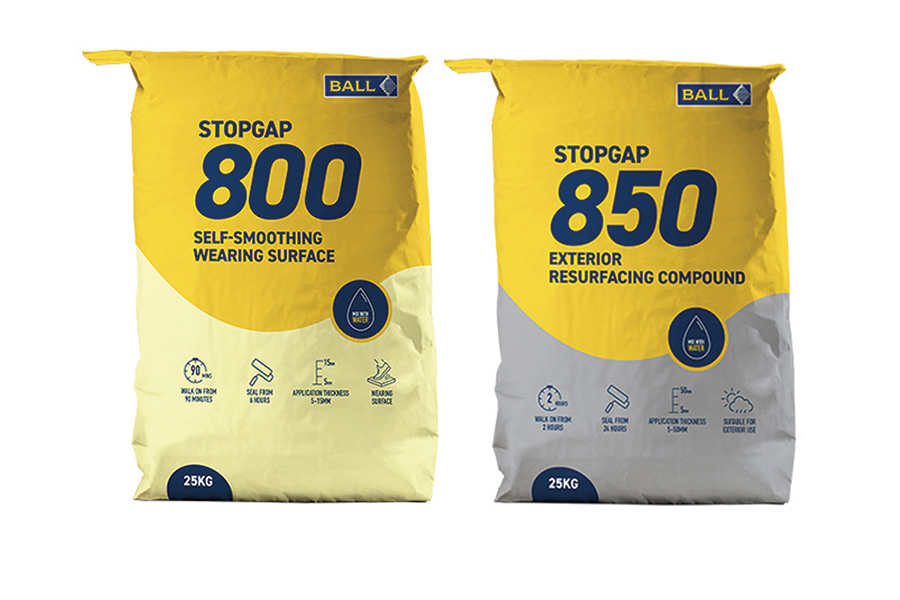How to get the best out of your industrial projects
Smoothing compounds for industrial settings
FOR industrial applications where floorcoverings aren’t required, rapid setting, industrial grade self-smoothing wearing surface compounds, such as F Ball’s Stopgap 800, offer an ideal solution, says the company.
‘It has a special class abrasion resistance, making it perfect for upgrading and renovating new and existing internal floors in heavy-duty industrial applications, such as factories, warehouses and workshops.
‘For external applications or for situations that may nominally be inside but still subject to external weather conditions, a purpose-designed exterior grade smoothing underlayment is required.’
Continues F Ball: ‘Stopgap 850, for example, can be used in light- to medium-duty areas and once cured is unaffected by rain or frost. If required, it can be finished with a suitable non-slip coating, or it can be left as a standalone exterior wear surface.
‘The moisture-tolerant properties of the product mean that it can also be used internally over damp, uneven concrete and sand/cement screeds prior to the application of a waterproof surface membrane.’
In areas where water or other fluids may come into direct contact with the cured smoothing underlayment, F Ball recommends the surface is treated with a sealer, such as Stopgap Seal, a water-dispersed modified polyurethane sealer.
‘This provides a hygienic and protective surface and eases maintenance by reducing the adhesion of dirt and other debris. It also offers a level of chemical resistance to many commonly found chemicals in industrial/commercial applications.
‘If it’s the case an internal floor requires a floorcovering, such as vinyl or other resilient material, a smoothing underlayment formulated for heavy-duty use should be selected instead. This will ensure the floor will be able to withstand heavy, concentrated loads, for example, from the wheels of a trolley used to transport heavy equipment or machinery.’
www.f-ball.co.uk

